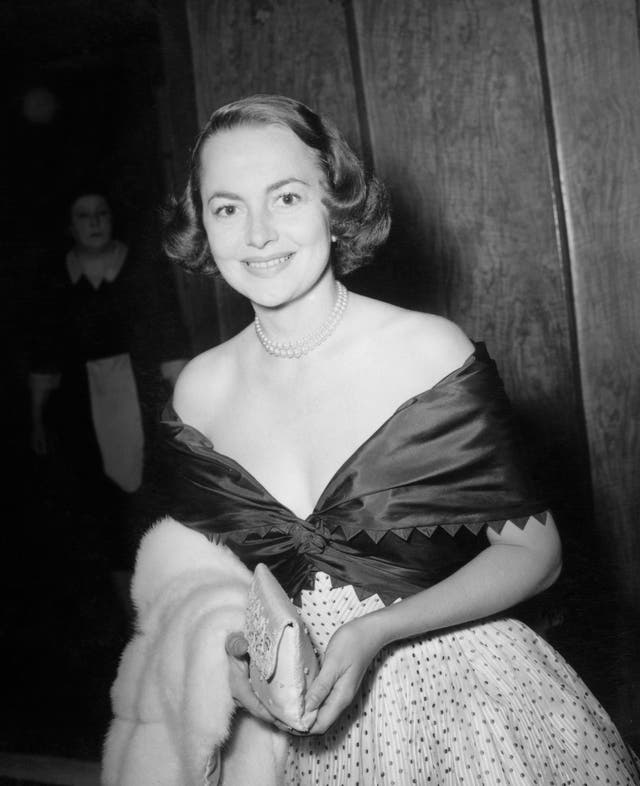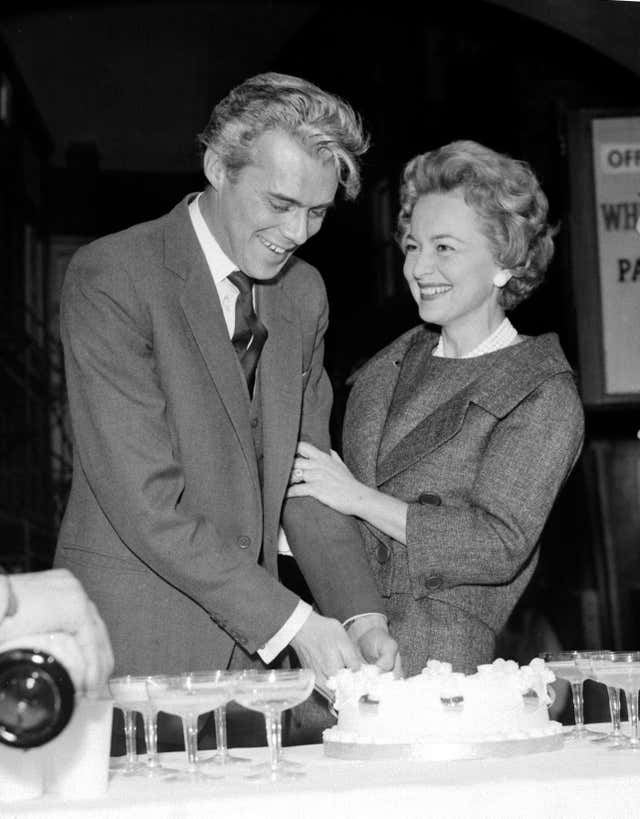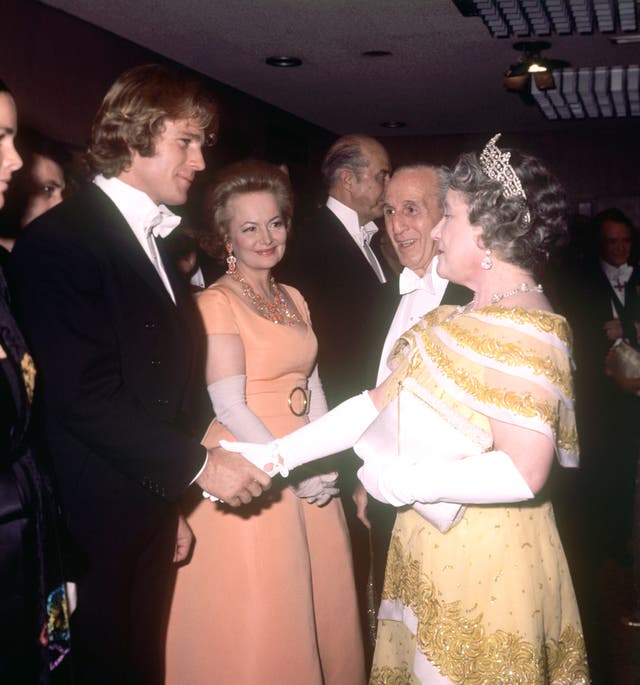Gone With The Wind actress Dame Olivia de Havilland has died aged 104.
The actress, one of the last surviving figures of Hollywood’s Golden Age, died at home in Paris, her representatives confirmed.
A statement said: “Last night, the world lost an international treasure, and I lost a dear friend and beloved client. She died peacefully in Paris.”

However, she is best remembered for her turn as Melanie Wilkes in the 1939 film Gone With The Wind.
Dame Olivia was born to British parents in Tokyo on July 1 1916 – the first day of the Battle of the Somme – but moved to California when she was young.
She first appeared on the big screen in 1935 as Dolly Stevens in Alibi Ike.
Soon she became known for her on-screen partnership with Hollywood heartthrob Errol Flynn on films including The Charge Of The Light Brigade (1936) and The Adventures Of Robin Hood (1938), although they never began a romantic relationship.

She made a number of television appearances and often worked on several movie titles a year until her last TV movie role as Aunt Bessie Merryman in The Woman He Loved in 1988.
Her younger sister, Joan Fontaine, with whom she had a famous rivalry, followed in her acting footsteps, winning an Oscar for her role in Alfred Hitchcock’s 1941 thriller Suspicion.
In 2017, she was made a dame for services to drama.
She said in a statement to the PA news agency at the time: “I am extremely proud that the Queen has appointed me a Dame Commander of the Order of the British Empire.
“To receive this honour as my 101st birthday approaches is the most gratifying of birthday presents.”

In 2019 she lost her lawsuit over a television series she claimed depicted her falsely and unfairly.
FX’s anthology series Feud: Bette And Joan, about the lives of Bette Davis and Joan Crawford, features Catherine Zeta Jones in the role of Dame Olivia.
She claimed producers were guilty of “unauthorised and false use” of her “name and reputation”.
Gone With The Wind was recently at the centre of controversy after it was removed from the HBO Max streaming service over its depiction of the pre-Civil War South.
It has since returned with a message saying it “denies the horrors of slavery”.






